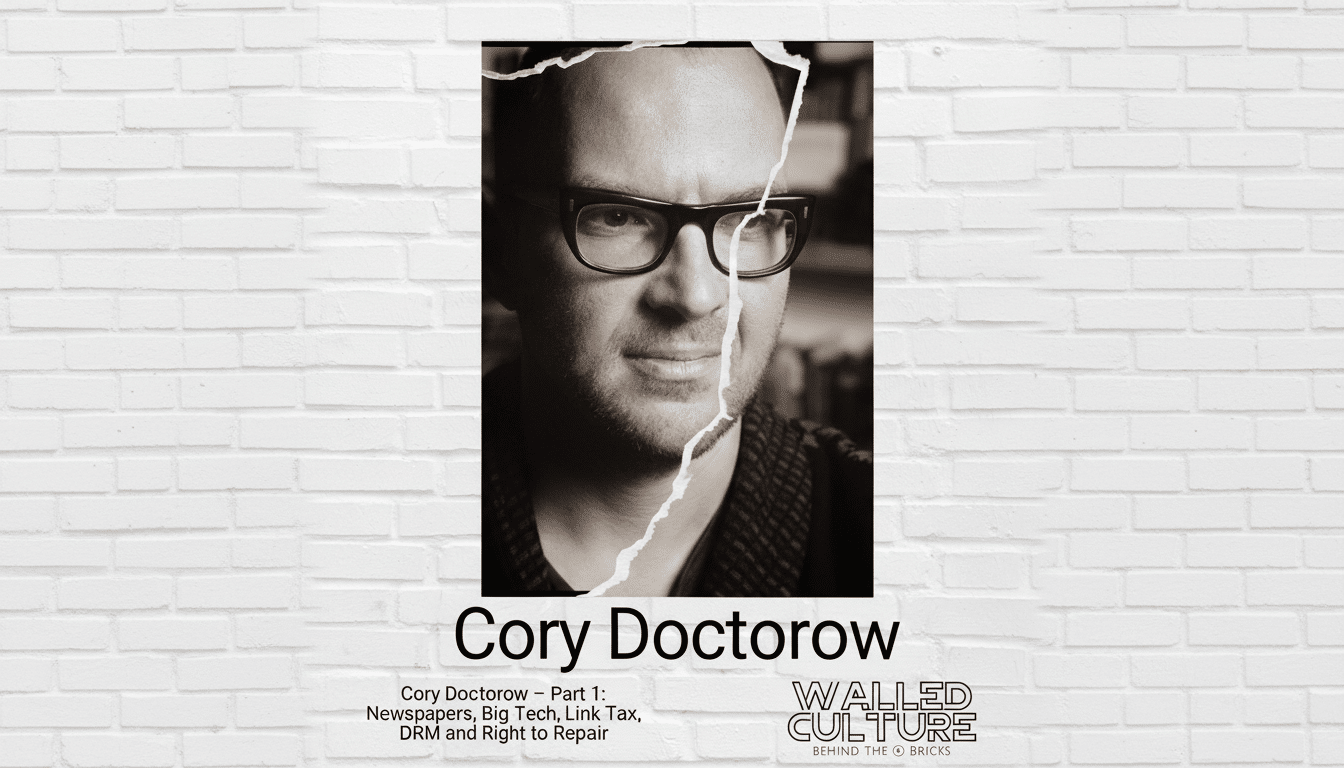Cory Doctorow is translating a long-simmering tech argument into policy: make jailbreaking, modding and tinkering to fix the internet’s power imbalance legal. His pitch is simple but grand — dismantle the anti-circumvention rules that criminalize reverse-engineering, give people a legal right to tinker with the software within their devices, and unfetter competition in places where platform gatekeepers have clamped down.
Why Legalizing Tinkering Matters for Users and Markets
Doctorow’s object is the suite of “anti-circumvention” laws that render it precarious for one to bypass digital locks regardless of how legal would-be conduct might be. In the US, that’s DMCA Section 1201 and the Computer Fraud and Abuse Act; in Europe, it is based on similar limitations from the InfoSoc Directive. The result is a chilling effect on users who want to make products work better, improve privacy or increase accessibility, he writes.
- Why Legalizing Tinkering Matters for Users and Markets
- Doctorow’s Policy Blueprint for Safe, Legal Jailbreaking
- What This Could Mean for Europe’s App Wars and Competition
- Weighing Security Risks Against the Broader Public Interest
- Economic Stakes and Consumer Gains From Legal Jailbreaking
- How a Balanced Law Could Enable Repair and Interoperability
- The Bottom Line on Legal Tinkering, Modding, and Jailbreaking

There’s a stark difference between the open web and sealed-off apps. People commonly modify their experience on the web — imagine things like ad blockers, custom styles and accessibility overlays. But in app ecosystems, similar changes are typically prevented by design and enforced by law. There are some triennial DMCA exemptions, such as those for smartphone jailbreaking and security research, though these are narrow at best, temporary in duration and lacking in certainty — not a basis for a competitive marketplace.
Doctorow’s Policy Blueprint for Safe, Legal Jailbreaking
Doctorow’s solution begins with immunity for good-faith jailbreaking. Unless you’re violating privacy, consumer protection or labor law, cracking a lock to interoperate with or improve a product should not be criminal. He argues that this is crucial infrastructure for digital self-help — a gateway to alt-clients, mods and third-party tools which help keep platforms honest.
That is not a license to pirate or exfiltrate personal data. It’s a right to make the things we own work better for us and our community, and to build alternatives whenever incumbents won’t or don’t fix obvious problems. The Electronic Frontier Foundation and others have long been making similar arguments around Section 1201, and regulators seem increasingly open to the broader principle. The US Federal Trade Commission’s Nixing the Fix report uncovered scant evidence to suggest that blanket restrictions on repairs enhance safety or security.
What This Could Mean for Europe’s App Wars and Competition
Europe is the fulcrum of Doctorow’s scheme here. The Digital Markets Act is already catalyzing gatekeepers to open app delivery and payments. The European Commission has opened noncompliance probes of platform changes that look like they blunt the intent of the DMA — analyzing fees, steering rules and technical hurdles that block rivals. Making jailbreaking and modding legal would actually put some meat into those competition goals as it would be legal to create and use tools that circumvent artificial barriers.
There is, Doctorow argues, an industrial policy upside: European firms might export “liberation tech” — interoperability layers and data-portability tools and alt-stores — serving a global user base trapped inside walled gardens. The explosive rise of open-source workplace suites within European institutions serves as an indication of how the demand for trustworthy alternatives is huge. One example of how policy and procurement can be used to shape competitive ecosystems is public-sector use of open, self-hosted stacks in Germany.
Weighing Security Risks Against the Broader Public Interest
Critics argue that diluting anti-circumvention regulations would open the door for malware and fraud. But by equating jailbreaking with criminality, you overlook how software security actually gets better: through independent testing, disclosure and the ability to patch or replace hostile code. There are already certain safe harbors for security research, but to extend them to the regular acts of reverse-engineering needed for interoperability and repair would multiply those who can test and make more expensive the shipping of dangerous or malevolent software.

Real-world examples back this up. It ultimately took independent testing to reveal the Volkswagen emissions scandal; more legal cover for reverse-engineering might have uncovered it sooner. In farming, states such as Colorado have passed right-to-repair laws after farmers had been locked out of tractor diagnostics for years. In the computer networking world, open firmware projects like OpenWrt are expected to continue support of devices for longer, with security updates coming out far sooner than many manufacturers provide.
Economic Stakes and Consumer Gains From Legal Jailbreaking
Jailbreaking and modding legalization would hurt platform rents and reduce switching costs. That’s the point. When users can route around gatekeeper policies, monopolistic behavior becomes difficult to maintain. Payments: In the UK, Open Banking is an example of how mandated interoperability is enabling new services. Open Banking Limited predicted millions of monthly active users by 2024, in a world where fintechs would battle on features rather than just to be allowed to exist at all.
There’s also a sustainability dividend. The Global E-waste Monitor estimates that tens of millions of tons of electronics are thrown out each year and only about 22% is formally collected and recycled. This makes repair, parts reuse and software modding the norm, which extends device lifespans, reduces waste and keeps hardware out of landfills — there’s an environmental win here that also benefits consumers by saving them money.
How a Balanced Law Could Enable Repair and Interoperability
A workable framework would provide:
- Clear exemptions from circumvention for interoperability, repair, accessibility and privacy protection;
- A safe harbor to allow for the distribution of tools that enable those purposes;
- Robust penalties against misuse of access, knowing disclosure of personal data, fraud or infringement of IP rights based on information misappropriated through unauthorized access;
- Clearly defined rights to data portability or third-party client access under consumer statutes.
Crucially, enforcement must have its eye on the ball in relation to what it’s trying to change: not a particular act of bypassing a lock but outcomes — harms to users, markets and privacy. That is consistent with prevailing doctrine on consumer protection and staves off the risk of innovation being frozen behind permission walls.
The Bottom Line on Legal Tinkering, Modding, and Jailbreaking
Doctorow’s challenge is timely: laws designed for DRM and corporate expediency now determine what we can do with our own devices. Legalizing jailbreaking, modding and tinkering would not immediately undermine platform power, but it would return a basic right to improve the tools we depend on. In an age of walled gardens and brittle “trust me” software, that right starts to look less like a hacker’s hobby and more like modern consumer protection.

